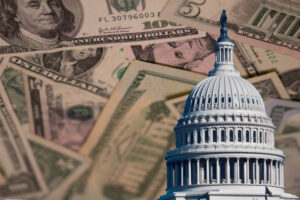
What does it mean to be economically empowered? Is it a better education, access to credit building, or a higher minimum wage? Most people would say it is all those opportunities and more. To be economically empowered is to be better prepared financially. It is knowing your way around money, real estate, and businesses.
“We were one of the first to create Advancing Black Pathways; others followed behind us,” said Jimmy Contreras, JPMorgan Chase & Co. strategic communications leader.
Suppose you are unfamiliar with Advancing Black Pathways. In that case, JPMorgan Chase & Co.’s initiative is to help Black communities chart more vital paths toward economic success and empowerment. This effort is like many attempts to help bridge the gap between the working class and the rich.
“We need more government officials and Congress members who are economically aware of Black people’s disadvantages and call to action for change,” Daysia Peoples said. “Our educational system lacks real American history that shares Black experiences and what our Historically Black Colleges (HBCUs) and people have suffered economically or emotionally.”
People’s statements coincided with the current climate of today’s Advance Placement (AP) African American studies course being challenged on January 12, 2023, due to children of Caucasian descent possibly feeling uncomfortable or guilty for their ancestors’ doings and later rejected on January 24, 2023, for lacking educational value and historical accuracy.
These actions may have possibly ignored and undermined many Black children in the public school system, according to activists such as Reverend Al Sharpton. Sharpton previously joined Rev. RB Holmes and others to march in protest of Florida’s involvement concerning a high school AP African American Studies course installation in the state. They marched from Holmes’ Bethel Missionary Baptist Church to the Tallahassee, FL, Capitol on February 15, 2023. The fight for public school students is due to them missing information about historical events that shape their world today. This would mean no more critical race theory, and studying contemporary topics like Black Lives Matter would be optional.
This year, Forbes reported President Joe Biden with a 41 percent approval rating and the United States government at 21 percent. The economic ratings are poor as well. 83% of Americans consider the economy fair or poor, and 72% believe it is getting worse. More than anything, people of color have not been accounted for but are included in these statistics.
HBCUs alone have missed over $12.8 billion in land grants by the U.S. educational system within the last three decades reported by Forbes. According to the University of Georgia, HBCUs produce over 130,000 jobs annually for local and regional economies, exhibiting over $14.8 billion in economic impact.
As for the police force, people like Frank and La Keisha Johnson could prove to be helpful. They are the founder and co-founder of the HBCU Legacy Foundation and have teamed up with the FBI to reassure change for policing within America towards Black or low-income communities and in general. “Teaming up with the FBI is important to ensure black lives are not taken,” Johnson said. “With these efforts being made, black lives still require congressional support and economic sustainability.”
Knowledge of the critical condition in Black communities could prove helpful going forward.